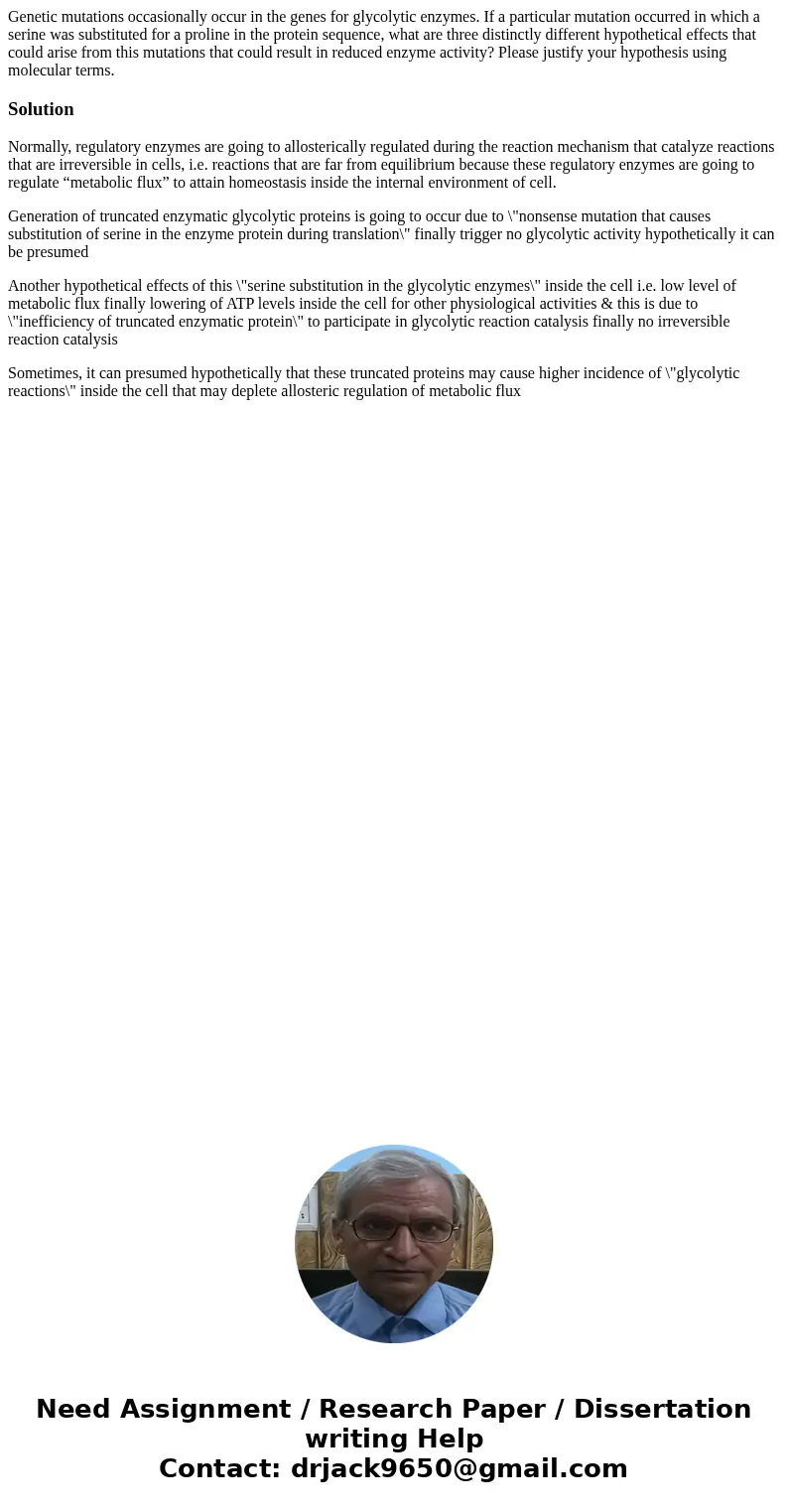Genetic mutations occasionally occur in the genes for glycol
Genetic mutations occasionally occur in the genes for glycolytic enzymes. If a particular mutation occurred in which a serine was substituted for a proline in the protein sequence, what are three distinctly different hypothetical effects that could arise from this mutations that could result in reduced enzyme activity? Please justify your hypothesis using molecular terms.
Solution
Normally, regulatory enzymes are going to allosterically regulated during the reaction mechanism that catalyze reactions that are irreversible in cells, i.e. reactions that are far from equilibrium because these regulatory enzymes are going to regulate “metabolic flux” to attain homeostasis inside the internal environment of cell.
Generation of truncated enzymatic glycolytic proteins is going to occur due to \"nonsense mutation that causes substitution of serine in the enzyme protein during translation\" finally trigger no glycolytic activity hypothetically it can be presumed
Another hypothetical effects of this \"serine substitution in the glycolytic enzymes\" inside the cell i.e. low level of metabolic flux finally lowering of ATP levels inside the cell for other physiological activities & this is due to \"inefficiency of truncated enzymatic protein\" to participate in glycolytic reaction catalysis finally no irreversible reaction catalysis
Sometimes, it can presumed hypothetically that these truncated proteins may cause higher incidence of \"glycolytic reactions\" inside the cell that may deplete allosteric regulation of metabolic flux

 Homework Sourse
Homework Sourse